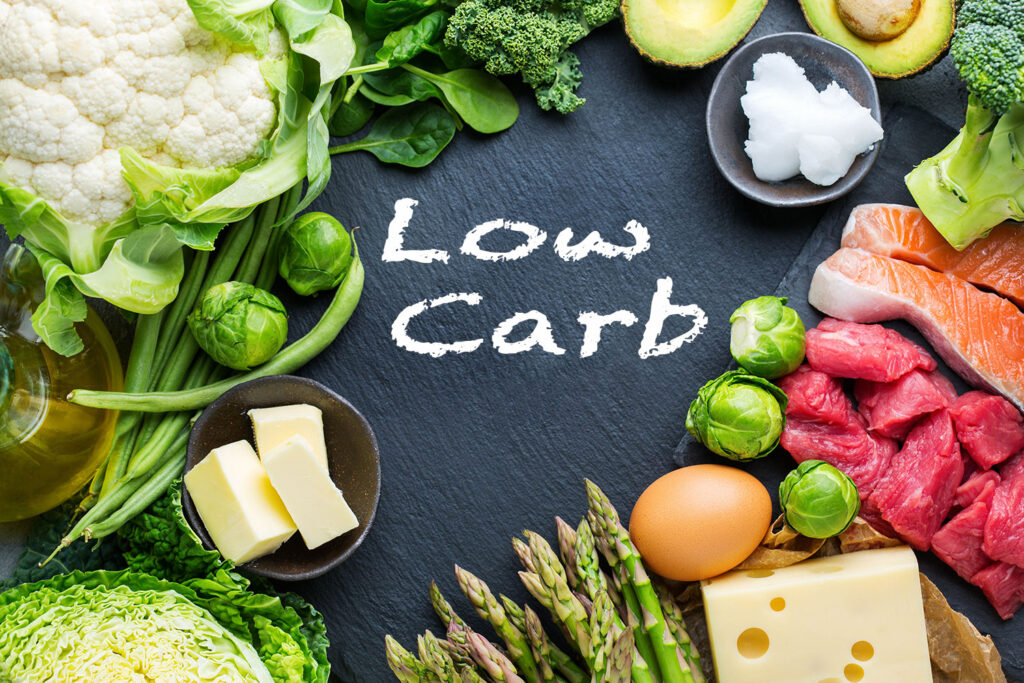However, despite the fact that the ketogenic diet has gained widespread attention, it is difficult to understand why this has occurred. This diet, known as the ketogenic diet, is extremely low in carbohydrates and high in fat, and it has been used to treat a wide range of medical conditions for many years. Some believe that it will aid you in losing weight while also increasing your energy levels and controlling your blood sugar level.
When it comes to dieting in today’s world of instant gratification, it makes a compelling case for itself because it promises rapid, aggressive, and long-lasting weight loss results. It is important to note that losing a few pounds is not the only benefit of following a ketogenic diet plan. Listed below are some of the most significant benefits that one can expect to experience when following a ketogenic eating plan.
Low Carb Diets Contribute to Better Fat Burning

Source: endocrineweb.com
When it comes to diets, glucose serves as the primary source of energy for the body in the vast majority of cases. According to its most basic definition, the ketogenic diet is a diet that forces the body to use fat as its primary source of energy rather than carbohydrates.
As a result, the body enters a state of starvation, in which it begins to break down fat reserves and convert them into ketones, which is accomplished through a biochemical process known as ketosis, which is described below.
Low Carb Diets Are Great Appetite Suppressants

Source: yourlowcarbhub.com
An extremely common complaint among people who are dieting is the constant sensation of hunger. In the long run, snacking and giving in to cravings as a result of simply being hungry will result in the failure of the diet plan.
When you consume a high-fat diet, and use some great recipes from fooddiez.com, you will have better control over your appetite, which will result in more weight loss overall. When following a ketogenic or low-carbohydrate diet, this is directly related to the reduction in carbohydrate intake and the increase in protein and fat intake, respectively.
Low Carb Diets Contribute to Weight Loss

Source: eatthis.com
In order for the body to convert carbohydrate sources into glucose, it must first break down the carbohydrates (sugar). A high-carbohydrate diet causes insulin levels to rise after meals, which helps with the breakdown of glucose for energy and the restoration of normal blood sugar levels after the meal is finished. When insulin levels are high, on the other hand, the body is instructed to store fat, and this is known as the “fat-storing hormone.”
When following a low-carbohydrate diet, fats are utilized as an energy source rather than carbohydrates. When the body adjusts to a lower carbohydrate intake and begins to rely on fat for energy instead of carbohydrates, the metabolic process known as ketosis begins. It is possible to keep insulin levels under control and fat storage to a significant extent by consuming only a small amount of carbohydrates.
Low Carb Diets Help with Reaching Ketosis

Source: timesofindia.indiatimes.com
If we go by generalizations, the ketogenic diet is composed of 70-75 percent of fat, 20-25 percent of protein, and 5-10 percent of carbohydrates. If one adheres to this strict formula, it is possible to ensure that one enters the metabolic state of ketosis, which is not always an easy feat.
It is true that for many people, achieving and maintaining ketosis can be extremely difficult to accomplish. In order to achieve and maintain ketosis, you must be dedicated and well-organized. As they get used to their new eating habits, people who are new to the ketogenic diet may experience symptoms such as dizziness, headaches, brain fog, nausea, and irritability while adjusting to their new eating habits.
In some circles, this condition is referred to as “the keto flu.” The majority of people experience a reduction in these side effects after a few weeks of becoming “keto-adapted.” As they get used to their new eating habits, people who are new to the ketogenic diet may experience symptoms such as dizziness, headaches, brain fog, nausea, and irritability while adjusting to their new eating habits.
Low Carb Diets Help Control Blood Sugar

Source: healthline.com
The blood sugar levels of diabetics are one of their first and most pressing concerns when they tweak or manipulate their diets, which is understandable given the nature of their disease. A change in the amount of sugar in the body can have an effect on insulin levels, which can have a variety of negative consequences.
When you consistently reduce your carbohydrate intake, on the other hand, the body does not require as much insulin to perform its functions correctly. The management of diabetics’ insulin levels and requirements may be improved as a result of this discovery.
The Ketogenic Diet Helps with Brain Disorders

Source: calmingblends.com
Take a look at the following examples: Think about the following evidence if you believe that a person’s diet has only a physical impact: As well as being used to lose weight, the ketogenic diet has been used to treat conditions such as epilepsy and obesity since the 1920s, and it has also been used to treat conditions such as diabetes since the 1960s. People with epilepsy may benefit from the ketogenic diet because it has been shown to significantly alter energy metabolism in the brain.
This may explain why the ketogenic diet is thought to be effective at stabilizing the functions of neurons exposed to seizures. As a result, it can help to reduce the number of seizure episodes that children experience, as well as shorten their recovery time from seizures.
The ketogenic diet has also been proposed as a potential therapeutic option for chronic diseases such as heart disease, neurological conditions, polycystic ovary syndrome, cancer, and diabetes. The ketogenic diet has also been proposed as a potential therapeutic option for chronic diseases such as diabetes. In addition, there is some evidence that eating a healthy diet improves insulin sensitivity, which is good news for people with diabetes who are insulin resistant.
Following a ketogenic diet, epileptic children who suffered from seizures saw a significant reduction in the number of seizures they experienced, according to the findings of studies. According to a recent study, more than 38% of children who followed a ketogenic diet lost weight, compared to only 6% of those who followed a traditional diet.
The burning of ketones in the brain has been shown to stimulate areas of the brain that require glucose to function properly, such as many parts of the cerebral cortex. It is being investigated whether or not there are other types of brain disorders such as Parkinson’s disease and Alzheimer’s disease.
Conclusion
It is undeniably true that ketogenic diets are beneficial to your health, and these benefits extend far beyond simply lowering your body fat percentage. Nutrition, as a whole, can be difficult to grasp, but the numerous benefits of a low-carb diet are undeniably compelling.
It’s possible to learn more about how to begin a ketogenic diet by reading a keto diet guide for beginners, which will provide you with additional information about the process. What you should eat, how many calories and macronutrients you should consume on a daily basis, and much more will be revealed to you.


























